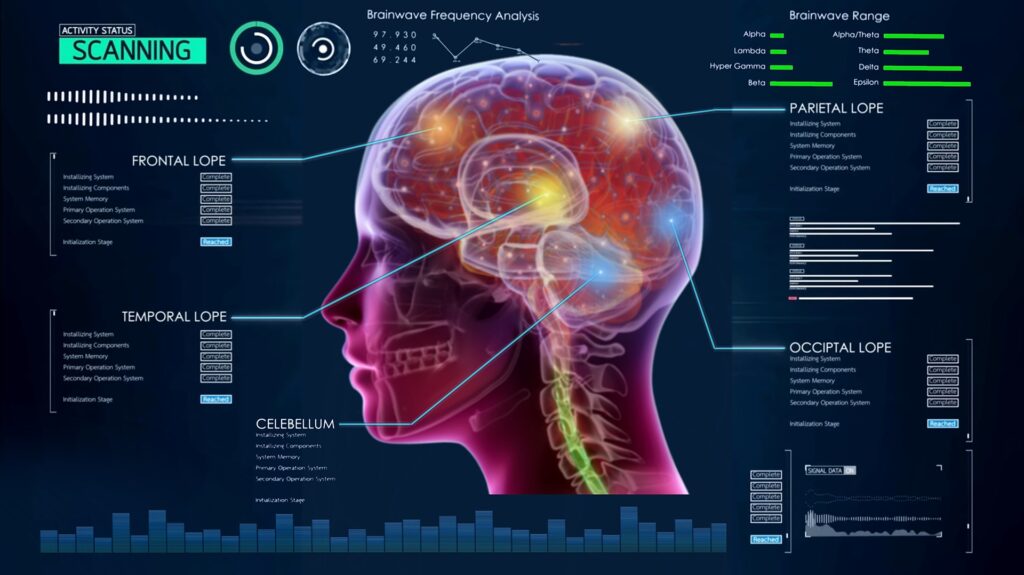Table of Contents
Togglewhat are 15 chatbot Artificial Intelligence Use Case – Transforming the Education Sector
Chatbot Artificial intelligence is the ability to simulate human intelligence in machines programmed to perform tasks that typically require human intelligence.
Chatbot Artificial Intelligence (AI) involves the development of algorithms that enable computer applications to understand and learn from data and make decisions based on that specific data. These algorithms adapt and improve over time, becoming more efficient and effective as they process more data.
Chatbot Artificial Intelligence (AI) is rapidly transforming various industries, and education is no exception. The application of Chatbot Artificial Intelligence (AI) in the education sector is changing and leveraging new technology in the way we teach and learn, and it can improve the quality of education while making it more accessible and affordable.
Chatbot Artificial Intelligence (AI) transforms how we live, work, and learn. ChatGPT has crossed 1 million users just in 5 days. Technology is changing fast and in education, Chatbot Artificial Intelligence (AI) has the potential to improve the quality of education while making it more accessible and affordable.
We have discussed this in detail in our previous blog post on what Chatbot Artificial Intelligence (AI) is and some of the benefits of artificial intelligence chatbots and use cases in our present life.
Here is the link for the previous blog post:
ARTIFICIAL INTELLIGENCE (AI): UNDERSTANDING ITS 15 BENEFITS AND USE CASES
In this below tech blog section, we will explore how Chatbot Artificial Intelligence (AI) is transforming the education sector and what are some areas where customers, partners, and companies can leverage Chatbot Artificial Intelligence (AI) specifically in the Education space.
Broad AI Education Use Cases
I. Personalized Learning
One of the essential benefits of Chatbot Artificial Intelligence (AI) in education is personalized learning. AI-powered educational platforms can analyze student data and provide customized learning experiences that cater to each student’s strengths, weaknesses, and learning styles.
Chatbot Artificial Intelligence (AI) algorithms can also track student progress and provide real-time feedback, making it easier for educators to identify areas where students need additional support.
II. Intelligent Tutoring Systems
Intelligent Tutoring Systems (ITS) are Chatbot Artificial Intelligence (AI) -powered educational platforms that provide personalized instruction and support to students. These systems use natural language processing, machine learning, and other Chatbot Artificial Intelligence (AI) techniques to understand student queries and provide appropriate responses.
ITS can also track student progress and adapt instruction to ensure that each student learns independently.
III. Intelligent Content Delivery
Chatbot Artificial Intelligence AI-powered educational platforms can also provide intelligent content delivery. These platforms can analyze student data and provide relevant content and resources to support student learning.
Chatbot Artificial Intelligence (AI) algorithms can also adapt the delivery of content based on student progress and performance, ensuring that each student receives the appropriate level of instruction.
IV. Automated Grading and Assessment
Chatbot Artificial Intelligence AI algorithms can also automate grading and assessment, reducing the time and effort required by educators to grade student work. Chatbot Artificial Intelligence (AI) -powered grading systems can analyze student responses and provide immediate feedback, reducing the time required to grade assignments and tests.
The process, in turn, allows educators to focus on other aspects of teaching, such as providing personalized instruction and student support.
V. Predictive Analytics
Chatbot Artificial Intelligence AI-powered educational platforms can also use predictive analytics to proactively identify students at risk of falling behind or dropping out. By analyzing student data, these platforms can identify students who may be struggling with specific topics or who may require additional support.
The process allows educators to intervene early and provide the support needed to ensure students remain engaged and motivated.
VI. Accessibility
Chatbot Artificial Intelligence AI-powered educational platforms can also improve accessibility by supporting students with disabilities. For example, natural language processing and voice recognition technologies support students with hearing or speech impairments. These technologies provide real-time translation for students who speak different languages, making education more accessible and inclusive.
How AI is Transforming Education: 20 Areas of Impact
Artificial Intelligence (AI) transforms how we live, work, and learn. In education, Chatbot Artificial Intelligence (AI) has the potential to improve the quality of education while making it more accessible and affordable.
Here are 20 areas where Chatbot Artificial Intelligence AI is transforming the education sector:
- Personalized Learning: Chatbot Artificial Intelligence AI-powered customized learning is integrated with various public cloud services such as Microsoft Azure, AWS, and GCP. These cloud services provide scalable and secure infrastructure to support personalized learning applications. Here is our previous blog, which talks about various integration of Chatbot Artificial Intelligence (AI) with public clouds.
- Intelligent Tutoring Systems: Intelligent tutoring systems can be hosted on public cloud services such as Google Cloud (GCP) and IBM Cloud. These cloud services provide advanced machine learning and natural language processing capabilities to support intelligent tutoring systems.
- Intelligent Content Delivery: Chatbot Artificial Intelligence AI-powered content delivery can be integrated with public cloud services such as AWS and GCP. These cloud services provide scalable and reliable infrastructure to support intelligent content delivery.
- Automated Grading and Assessment: Chatbot Artificial Intelligence AI-powered grading and assessment can be integrated with public cloud services such as Azure and AWS. These cloud services provide a scalable and secure automated grading and evaluation infrastructure.
- Predictive Analytics: Chatbot Artificial Intelligence AI-powered predictive analytics can be integrated with public cloud services such as GCP and Azure. These cloud services provide advanced machine learning capabilities to support predictive analytics.
- Accessibility: Chatbot Artificial Intelligence AI-powered accessibility tools can be integrated with public cloud services such as AWS and GCP. These cloud services provide scalable and reliable infrastructure to support accessibility tools.
- Language Translation: Chatbot Artificial Intelligence AI-powered language translation tools can be integrated with public cloud services such as Azure and AWS. These cloud services provide advanced natural language processing capabilities to support language translation.
- Chatbots: AI-powered chatbots can be hosted on public cloud services such as GCP and AWS. These cloud services provide scalable and reliable infrastructure to support chatbots.
- Learning Analytics: AI-powered learning analytics can be integrated with public cloud services such as Azure and Google Cloud. These cloud services provide scalable and secure infrastructure to support learning analytics.
- Automated Lesson Planning: AI-powered automated lesson planning can be integrated with public cloud services such as AWS and GCP. These cloud services provide scalable and reliable infrastructure to support automated lesson planning.
- Personalized Feedback: AI-powered customized feedback can be integrated with public cloud services such as Azure and AWS. These cloud services provide scalable and secure infrastructure to support tailored feedback.
- Virtual Assistants: AI-powered virtual assistants can be hosted on public cloud services such as GCP and AWS. These cloud services provide scalable and reliable infrastructure to support virtual assistants.
- Learning Games: AI-powered learning games can be integrated with public cloud services such as Azure and AWS. These cloud services provide scalable and secure infrastructure to support learning games.
- Facial Recognition: AI-powered facial recognition can be integrated with public cloud services such as AWS and GCP. These cloud services provide advanced machine-learning capabilities to support facial recognition.
- Adaptive Learning: AI-powered adaptive learning can be integrated with public cloud services such as Azure and GCP. These cloud services provide scalable and secure infrastructure to support adaptive learning.
- Proctoring: AI-powered proctoring can be integrated with public cloud services such as AWS and GCP. These cloud services provide scalable and reliable infrastructure to support proctoring.
- Career Guidance: AI-powered career guidance can be integrated with public cloud services such as Azure and AWS. These cloud services provide advanced machine-learning capabilities to support career guidance.
- Content Creation: AI-powered content creation can be integrated with public cloud services such as GCP and AWS. These cloud services provide scalable and secure infrastructure to support content creation.
- Personalized Learning Paths: AI-powered personalized learning paths can be integrated with public cloud services such as Azure and GCP. These cloud services provide scalable and reliable infrastructure to support personalized learning paths.
- Student Retention: AI-powered student retention tools can be integrated with public cloud services such as AWS and GCP.
Courses to Pursue a Career in AI and Job Opportunities
Artificial Intelligence (AI) is a fast-paced, growing field with many job opportunities. Here are some courses that students can opt to pursue a career in AI and some of the AI job opportunities available:
- Computer Science: Computer science is the foundational field for AI. Courses in computer science provide students with a strong foundation in programming, algorithms, data structures, and machine learning.
- Mathematics and Statistics: Mathematics and statistics courses provide students with a strong foundation in mathematical modeling, optimization, and probability theory, essential for developing and understanding AI algorithms.
- Machine Learning: Machine learning courses give students a strong understanding of the algorithms and techniques used to develop AI systems.
- Natural Language Processing: Natural language processing courses provide students with a strong understanding of the techniques used to analyze and understand human language, essential for developing AI-powered language translation and chatbot systems.
- Robotics: Robotics courses give students a strong understanding of the principles and techniques of developing AI-powered robots.
- Data Science: Data science courses provide students with a strong understanding of data analysis, data visualization, and data mining techniques, essential for developing AI systems that can learn from data.
- Deep Learning: Deep learning courses provide students with a strong understanding of deep neural networks, which are the foundation of many advanced AI systems.
- Cognitive Science: Cognitive science courses provide students with a strong understanding of human cognition and perception, which is essential for developing AI systems that can interact with humans.
- Human-Computer Interaction: Human-computer interaction courses provide students with a strong understanding of how humans interact with computers and how to design AI systems that provide a natural and intuitive user experience.
AI Job Opportunities
Here we are going to show some of the AI job opportunities which are available for kids who are looking for careers in the Artificial Intelligence field.
- Machine Learning Engineer: Machine learning engineers develop and maintain AI systems that can learn from data and make predictions.
- Data Scientist: Data scientists analyze and interpret large amounts of data to develop insights and recommendations for businesses and organizations.
- Natural Language Processing Engineer: Natural language processing engineers develop AI systems that analyze and understand human languages, such as chatbots and language translation systems.
- Robotics Engineer: Robotics engineers develop AI-powered robots for various applications, including manufacturing, healthcare, and logistics.
- AI Researcher: AI researchers research to develop new AI algorithms and techniques.
- AI Consultant: AI consultants provide businesses and organizations with advice and recommendations on integrating AI into their operations.
- AI Ethicist: AI ethicists study the ethical implications of AI and guide how to develop and use AI responsibly.
- AI Product Manager: AI product managers oversee the development and launch of AI-powered products and services.
- AI Software Developer: AI software developers develop and maintain applications that use AI algorithms and techniques.
Conclusion
Chatbot Artificial Intelligence is transforming the education sector in significant ways. From personalized learning to automated grading and assessment, AI is revolutionizing how we teach and learn. As chatbot Artificial Intelligence continues to optimize, we can expect to see even more diverse innovative applications in education, further enhancing the quality and accessibility of education for students worldwide.
In conclusion, AI is transforming the education sector in numerous ways, providing personalized learning experiences, intelligent tutoring, automated grading and assessment, predictive analytics, improved accessibility, and many other benefits.
The integration of Chatbot Artificial Intelligence AI in education has the potential to improve the quality of education while making it more easily accessible and affordable for a diverse set of kids. As technology continues to evolve, we can see more innovative applications in education, further enhancing the quality and accessibility of education for students worldwide.
Please share your thoughts and feedback below.
Thank you!

